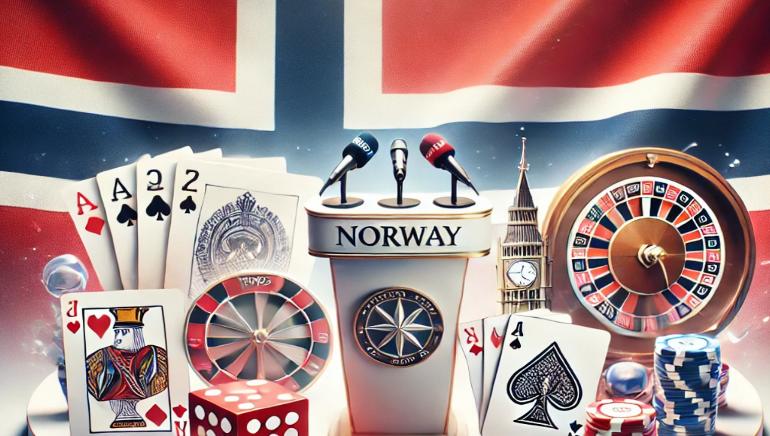
Norway’s Conservative Party has joined the call to end the national gambling monopoly, advocating for a licensed system by 2028.
In a significant move, Norway’s Conservative Party (Høyre) has formally called for the end of the country’s state-controlled gambling monopoly. This policy shift, introduced in the party’s 9 September election manifesto, could pave the way for a fully licensed gambling model in Norway by 2028. The change would replace the existing system, where gambling is solely provided by the state monopolies Norsk Tipping and Norsk Rikstoto.
The Conservative Party, Norway’s second-largest political force with 36 out of 169 parliamentary seats, has taken this stance in response to growing calls for market liberalization. The manifesto reflects a new policy direction that aligns with other Scandinavian nations like Sweden and Denmark, which have already adopted licensed gambling models.
Influence of Finland’s Market Liberalization
Norway remains the last Scandinavian country to maintain a gambling monopoly. However, Finland’s decision to liberalize its online gambling market in July has reignited the debate in Norway. With Finland moving towards a regulated and licensed market, political interest in revisiting Norway’s gambling laws has surged.
The new Conservative manifesto, supported by crucial party members such as Magnus Mæland, Ola Svenneby, Tage Pettersen, and Anita Oterhals Eide, emphasizes the potential financial benefits of a licensing system. The policy reads, “Replace the current exclusive rights model with a licensed model to increase revenues for the state and [provide] greater opportunities to help those who are struggling with problem gambling.”
The manifesto also highlights the potential to learn from neighboring countries: “Arrangements and framework conditions [can be] investigated based on the experiences from Sweden, Denmark, and Finland.” This represents a stark departure from the party’s previous 2021 stance, which supported preserving the monopoly system.
A Shift in Political Landscape
The Conservative Party’s shift in gambling policy reflects changing public attitudes toward state control of the gambling sector. In the 2021 general election, the Conservatives garnered 20.6% of the vote. With the next general election scheduled for 8 September 2025, political parties are finalizing their manifestos and preparing for public consultations. Once reviewed, these manifestos will be presented to the national assembly for debate.
While the Labour Party, which governs with a small majority, has supported the monopoly system, opposition parties have taken a different view. The Progress Party, which holds 21 seats in parliament, was the first to call for the end of the gambling monopoly in its 2021 manifesto. It proposed introducing “a licensing scheme for sports and entertainment games on an equal footing with our neighboring countries.”
The Liberal Party, meanwhile, has taken a more measured approach. In its 2025 manifesto, the party announced that it would review existing gambling regulations to address gambling addiction. While not explicitly calling for an end to the monopoly, the Liberals’ stance leaves room for potential reforms.
Public Consultation and Future Steps
Norway’s political system allows for significant public consultation in drafting party manifestos. As the 2025 general election approaches, the public will have the opportunity to weigh in on the proposed changes, including the potential liberalization of the gambling market.
Finland’s decision to end its monopoly provides a clear example. The Conservative Party is positioning itself as a leader in pushing for a regulated, licensed gambling market. Should the party gain more influence in the 2025 election, this policy could reshape Norway’s gambling landscape by 2028.
Norway’s Conservative Party’s call to end the gambling monopoly is a significant shift in the country’s gaming policy. As political parties prepare for the 2025 elections, the future of Norway’s gambling industry could hinge on the outcome of this debate.
Previous Advocacy for Market Reform in January 2024
In January 2024, significant developments regarding Norway’s gambling monopoly were reported when the International Betting Integrity Association (IBIA) and the Norwegian Betting Association (NBO) joined forces to advocate for a shift away from the monopoly system. Both organizations argued that the current structure was insufficient in addressing challenges such as gambling addiction and the rise of unregulated gambling. They pushed for a licensed model, similar to those in other European countries, to provide better consumer protections and more transparent oversight. Their joint efforts underscored the need for reform, laying the groundwork for the political momentum in the Conservative Party’s recent manifesto.